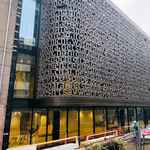Seminar | New Scholarship on Historical Women’s Writing
ACSEM
- Date
- 12 March 2024
- Time
- 15:30 -17:00
- Location
- University Library
- Room
- Belle van Zuylenzaal
Together, they will reflect on pressing questions like: how is women’s writing scholarship helping shape innovative methodologies and theoretical concepts, and how to relate women’s writing scholarship to broader developments and pressing issues in humanities research? To join this seminar, please sign up by sending an email to amsterdamcentre-fgw@uva.nl.
This seminar is co-organized by the Amsterdam Centre for the Study of Early Modernity and the Huizinga network Women’s Writing in History.
Abstracts
Laure Primerano, ‘Newly funded research: “Making the Cut”
My recently FWO funded PhD project ‘Making the Cut’ uses collective biographies to investigate representations of early modern female intellectual authority. These biographical compilations of the learned were popular throughout the early modern period, with a considerable rise in Enlightenment Europe. Using digital humanities tools, I systematically analyze an extensive and previously underexplored corpus of gendered biographical entries spanning through the 18th century Republic of Letters. My research analyses how the representations of early modern learned women such as Anna Maria van Schurman and Emilie du Châtelet helped shape a collective image of female intellectual authority. My project aims to underline the dynamics and mechanisms at play in early modern textual and visual representations of female intellectuals from a pan-European and gendered-mixed perspective. It will thus provide a historical insight to the question of female representation in the intellectual field, an issue that is still stirring our academic communities today.
Tanne Bloks, ‘A new perspective on De Timmerman’s scientific knowledge’
Johanna Petronella de Timmerman is known as an exceptional woman - one of the very few women about whom we know she actively engaged in the male-dominated field of natural science during the eighteenth century. Unfortunately, all manuscripts related to her research as part of the Women's Society for Natural Knowledge (Natuurkundig Genootschap der Dames) were burned during WWII, silencing her scientific voice in our archives. Only a biographical sketch written by her second husband, who stresses her learnedness, and a selection of poems he published posthumously remain. In this sketch, her husband names many scientific books his wife would have engaged with. To what extent can we see this knowledge resonating in her only work we have left, her own poems? Does she show knowledge of science when we pay close attention to her own voice? Earlier research has shown that explicit references to science are scarcely found in De Timmermans poetry, and therefore is has hardly been analysed. However, in this paper, I shall use the concepts of “implicit referencing” and “domestication of knowledge” to look at the extent to which her poetry engages with scientific knowledge afresh.
Anna-Rose Shack, Zoë Van Cauwenberg and Fauve Vandenberghe, ‘Affective Encounters: Literary and Scholarly Affect in the Study of Historical Women’s Writing, 1550-1800’
We (Anna-Rose Shack, Fauve Vandenberghe and Zoë Van Cauwenberg) are collaborating on a co-edited special issue of Aphra Behn Online, scheduled for publication in spring 2025.
This special issue intervenes in the study of women and emotion, with particular focus on female-authored texts between 1600-1800. By turning to historical women’s writing, this special issue aims to build a fuller critical understanding of the history of emotions and the circulation of affect in early modern literary culture. The papers in this special issue were born out of a conference on form and affect we hosted at Ghent University in 2022. Rejecting traditional periodisation, this conference stimulated transtemporal discussions that will now continue in our co-edited special issue. At this ACSEM seminar we would like to share and discuss the key research findings that will inform our co-written introduction.
